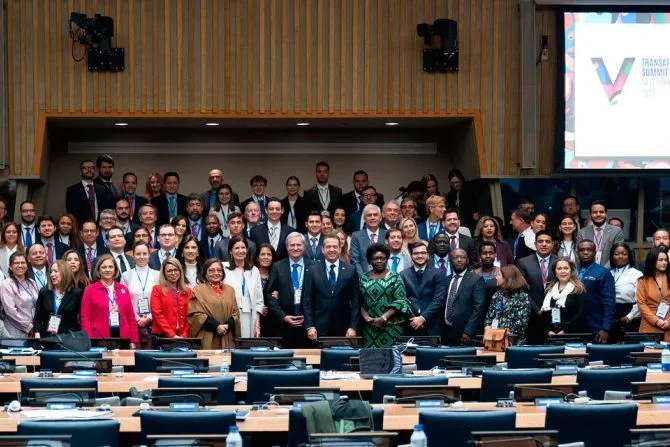Washington D.C., 20 November, 2023 / 2:00 pm (ACI Africa).
The fifth Transatlantic Summit organized by The Political Network for Values (PNfV) last week brought together more than 200 leaders from 40 countries around the world who signed the “New York Commitment,” which seeks to restore the original meaning of the Universal Declaration of Human Rights (UDHR) on the occasion the 75th anniversary of its proclamation.
The “New York Commitment,” according to an article posted Nov. 18 on the PNfV’s website, “gives visibility to a broad consensus that exists on all continents regarding the need to affirm the dignity of the person and fundamental values, especially, life, the family, and freedoms.”
“We are here to bring forth, in its original sense, the agreement of 1948. We must return to the human person and, from there, ensure his fundamental rights. It is precisely here, at the United Nations, that our voice needs to be heard. We assert the timeless and transcendent principles that inspired the Universal Declaration of Human Rights,” José Antonio Kast, former presidential candidate in Chile and president of the PNfV, said at the U.N. headquarters in New York.
“It is precisely here, at the United Nations, that our voice needs to be heard. We assert the timeless and transcendent principles that inspired the Universal Declaration of Human Rights,” he added.
The leaders from around the world committed to working “to establish environments favorable to the formation and stability of the family; to protect children, both before and after birth; and to respect the freedom of parents and legal guardians to provide the religious and moral education of their children in accordance with their own convictions.”








